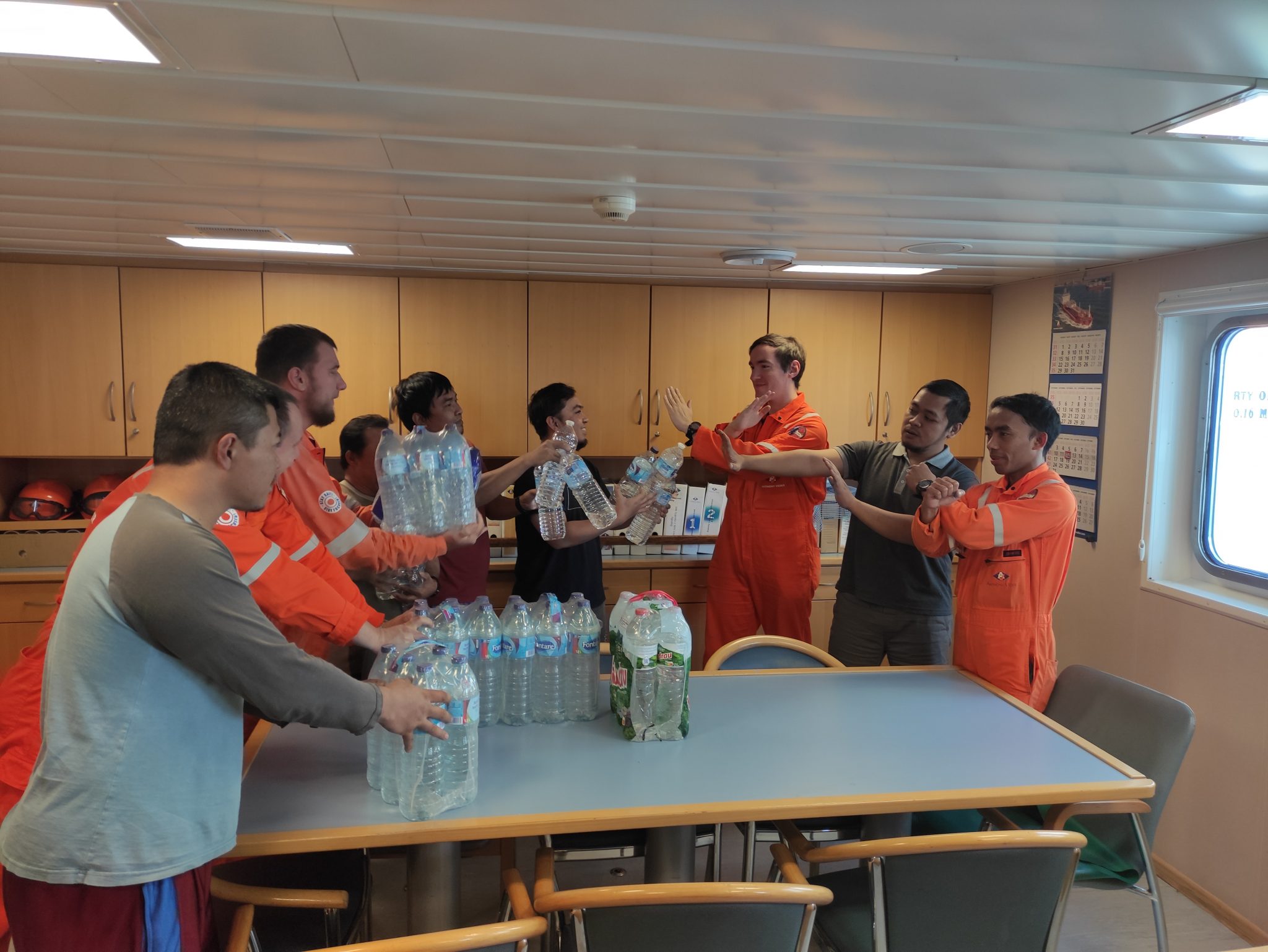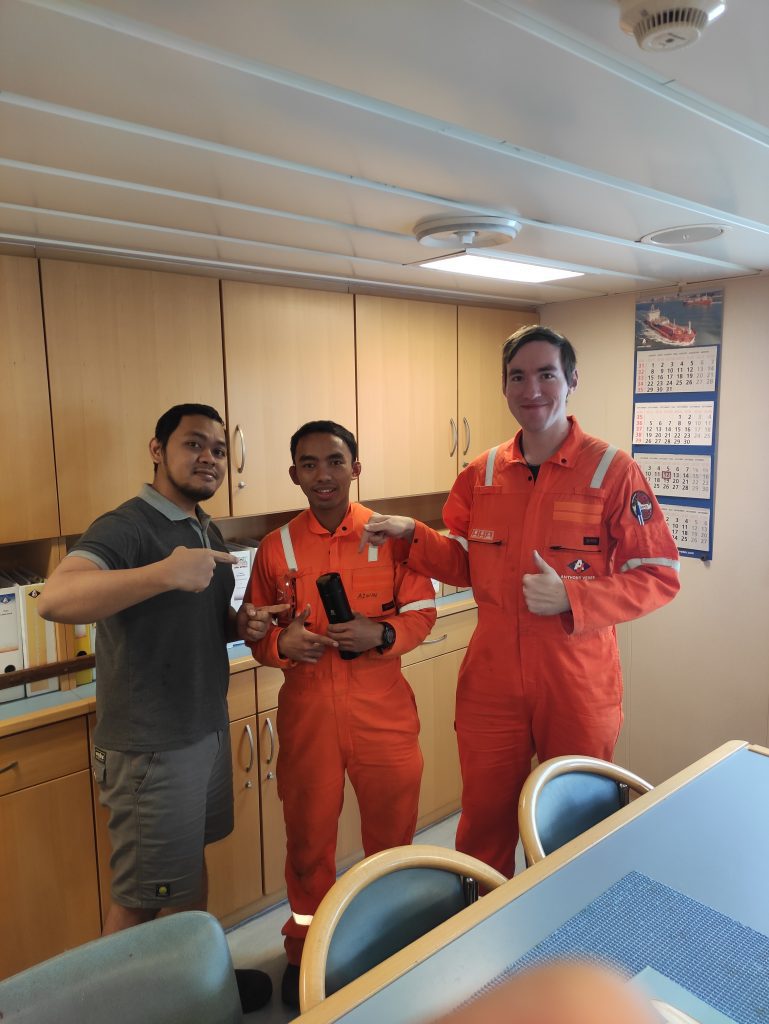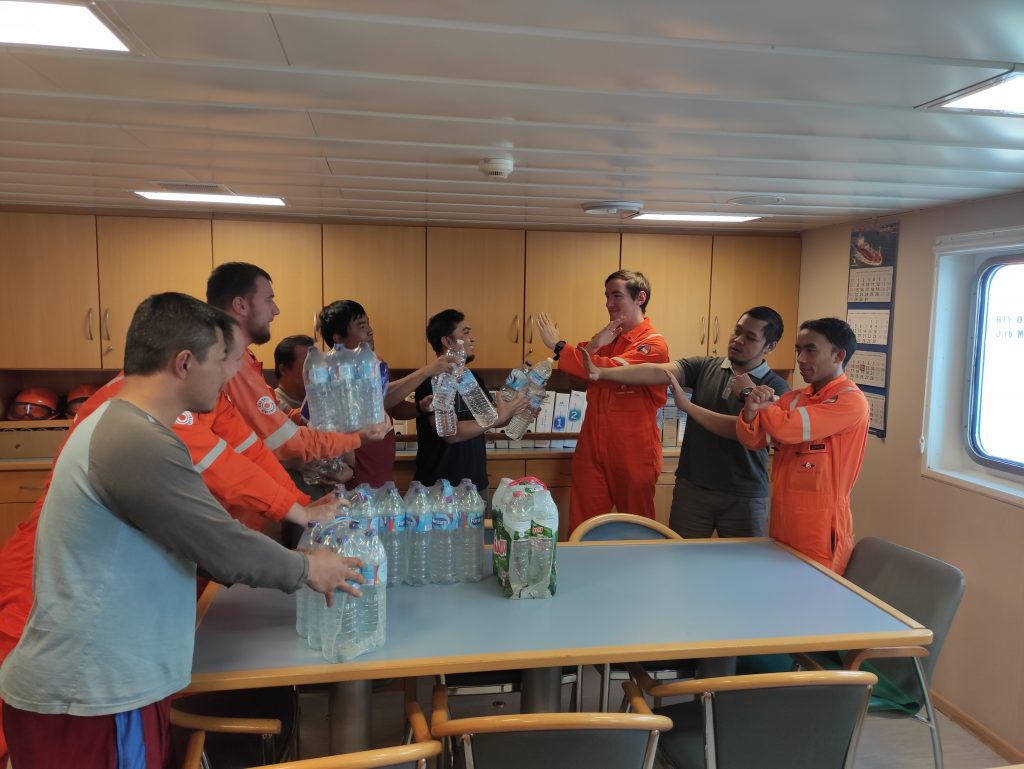
Drown out plastic bottles
On our vessels we drink a lot of water from plastic bottles. The use of plastic bottles has been investigated. We concluded that throwing away large amounts of plastic bottles is not sustainable.. To investigate the possibilities to reduce plastic bottles a project team was set up. Together with the team members and several expert companies we discussed the possibilities to use a water filtration system.
Some ships are already using different supplying filtration units and we are selecting the best system to deliver the best drinking water on board. This also includes stainless steel drinking water bottles.
We asked some colleagues on board to share their thoughts and opinions. Below you can read the story from Mykola, on board of the Coral Methane. The remarks and suggestions we received will be investigated and taken into account.
My name is Mykola, I am 28 years old and working on board of Coral Methane. My home town is Odesa, Ukraine. As Anthony Veder is introducing the Drinking Water Project onboard, I would like to share my thoughts on reducing plastic waste and other connected benefits which this nice project provides.
It is well known that plastic waste causes great harm to environment, especially to sea life. Nearly 700 species, including endangered ones, are known to have been affected by plastics. Most of the plastic trash in the oceans flows originates from land. Trash is also carried to sea by major rivers, which pick up more and more trash as they move downstream.
Plastic could get to open water accidently and not always illegally, such as during a natural distaster. Once at sea, much of the plastic trash remains in coastal waters. But once caught up in ocean currents, it will be transported around the world.
Once at sea, sunlight, wind, and wave action break down plastic waste into small particles, often less than one-fifth of an inch across, which can be digested by mistake by sea habitants, severely affecting their health.
To avoid this harm to environment, the use of plastic, even recyclable plastic, such as PET bottles, have to be reduced. As Anthony Veder we act responsibly for the environment, therefore it is great to implement this drinking water project, where no plastic bottles will be delivered onboard and drinking water systems are installed instead.

On one hand, this strategic move not only represents one step ahead to the future with clean oceans and lands, but is also beneficial for the well-being of seafarers. This is because the transfer of chemicals (such as Antimony, Phthalates, Estrogen-like chemicals), known as leaching, from packaging onto food or drinks may happen, especially when bottle is heated (in tropical areas on deck) or stored for prolonged time (in provision stores onboard), under UV light (on deck). These chemicals can harm our health. If talking about recycled plastic bottles: they are likely to contain more harmful chemicals than bottles which are made from virgin plastic.
Furthermore, getting rid of plastic bottles also has an economical benefit, since drinking water will be produced onboard and no plastic bottles need to be purchased and transported. Currently plastic bottles are transported on large pallets with a lot of plastic packing material. .

In conclusion I have already heard positive feedback (with exceeding expectations) from my colleagues on other vessels about the water filtration system. Unfortunately Coral Methane doesn’t have this system yet.
It is worth mentioning that we need to drink enough water every day (2.7 liters for women 3.7 liters for men) and the use of soft drinks preferably is to be avoided to promote a healthy lifestyle among seafarers.
Cannot wait to try a glass of water from the drinking water installation.

